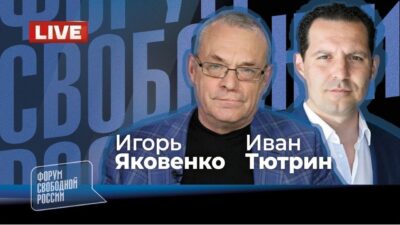Russian President Vladimir Putin has proposed a surprise constitutional shakeup that could keep him in power beyond the end of his term in 2024, and appointed a new prime minister after Dmitry Medvedev and his cabinet resigned.
Putin used his annual state-of-the-nation speech on January 15 to call for a referendum on substantial constitutional amendments that would strengthen parliament’s powers ahead of the end of his term in 2024.
“Given that the proposed reforms concern significant changes to the political system, the work of legislative, executive and judicial authorities, I believe it is necessary to hold a plebiscite on the entire package of the proposed amendments to the Russian Constitution,” Putin added without specifying any date for a vote.
Hours later, Putin named little-known Federal Tax Service chief Mikhail Mishustin as Russia’s new prime minister after Medvedev resigned following the president’s announcement.
Mishustin, 53, has worked in the government since 1998 and has been head of the Federal Tax Service since 2010.
Observers said the day’s dramatic events are likely preparing the ground for 2024, when Putin, now 67, must leave the presidency. Putin has occupied the presidency or the prime minister’s job continuously since 1999, and was reelected in 2018 for a final six-year term under the current constitution.
Announcing the moves in his address to Russia’s Federal Assembly, Putin said the country’s 1993 constitution should be amended, including giving the State Duma — the lower house of parliament — the right to name cabinet ministers and the prime minister, a power that currently belongs to the president.
At the same time, Putin said Russia must remain a “strong presidential republic,” with the president retaining powers such as the right to dismiss the prime minister and cabinet ministers, as well as naming top defense and security officials.
“This will increase the role and significance of the country’s parliament,” Putin said.
“For my part, I want to thank you for everything that was done at this stage of our joint work. I want to express satisfaction with the results that have been achieved,” Putin said at the meeting with Medvedev and his cabinet.
“Not everything was done, of course, but everything never works out completely,” Putin added.
Medvedev announced his government’s resignation during the live broadcast of a cabinet meeting with Putin.
“After the [constitutional] changes are adopted, and most likely this will be done after discussions, there will be significant changes…in the balance of power,” Medvedev said.
“In that context, we, as the government of the Russian Federation, must provide our country’s president with an opportunity to make all necessary decisions and in these conditions, I think the government of the Russian Federation made the proper move to resign,” he added.
Russian news agencies said Putin plans to create the position of deputy chairman of the Security Council of Russia and that the post will be offered to Medvedev.
Observers say that Putin’s choice of Mishustin, who lacks any political weight, indicates that the latter will not play an independent role.
Mishustin will face a vote of approval in the Duma within one week.
Russia last conducted a referendum in 1993 when it adopted the constitution under Putin’s predecessor, Boris Yeltsin.
Tightening Presidential Requirements
Putin also suggested tightening the requirements for becoming president, saying any future Russian president should have lived in the country for at least 25 years and have no foreign citizenship or residency.
In addition, he also talked about a constitutional change that would enshrine the priority of domestic legislation over international law.
The speech came with the country still under Western sanctions for its actions in Ukraine and Syria, as well as its alleged election meddling in the United States.
The sanctions have hampered the country’s economic growth, leading to rising poverty rates and growing discontent highlighted by protests last summer in Moscow.
Aleksei Navalny, Russia’s most prominent opposition leader and Kremlin critic, tweeted that Putin’s speech clearly signaled his desire to stay in control after his term ends.
“The only goal of Putin and his regime is to stay in charge for life, having the entire country as his personal asset and seizing its riches for himself and his friends,” Navalny said.
Navalny said he expected any vote on constitutional changes to be “fraudulent crap.”
Social-Spending Measures
The address at Moscow’s Manezh exhibition hall is one of three regularly scheduled national appearances that Putin makes each year — the others being a lavish question-and-answer session with the public and a stage-managed annual press conference.
It is the 16th time Putin has delivered the address before an audience that also includes government ministers, judges from the constitutional and supreme courts, leading regional officials, and other members of the political elite.
In response to public discord, Putin spelled out social-spending measures to counter Russia’s declining population, which he characterized as a “direct threat” to the country’s future, including a nationwide hot-school-meals program.
Putin said low incomes remain an obstacle to increasing the population, now at about 147 million, as the country faces the consequences of the post-Soviet economic collapse that led to a steep drop in the birthrate.
“We need to expedite achievement to meet the large-scale social, economic, and technological challenges our country faces,” he said.
“Our society is clearly demonstrating a demand for change. People want development and are trying to make progress in the fields of vocation, knowledge, and well being,” Putin said.
In his speech, Putin also boasted about Russian weaponry. He claimed that Russia is leading in the global arms race and is no longer forced to “catch up” to other world powers.




